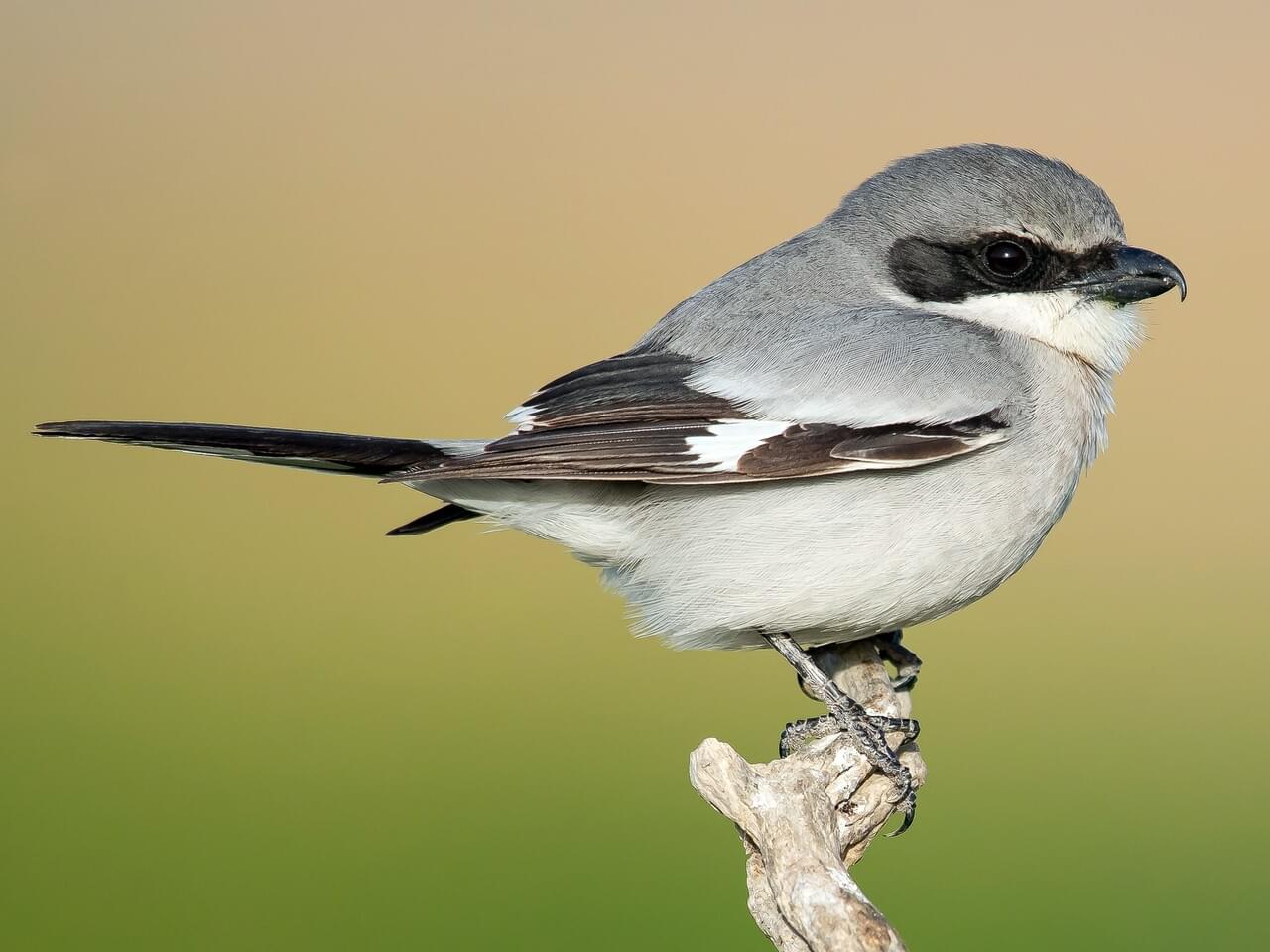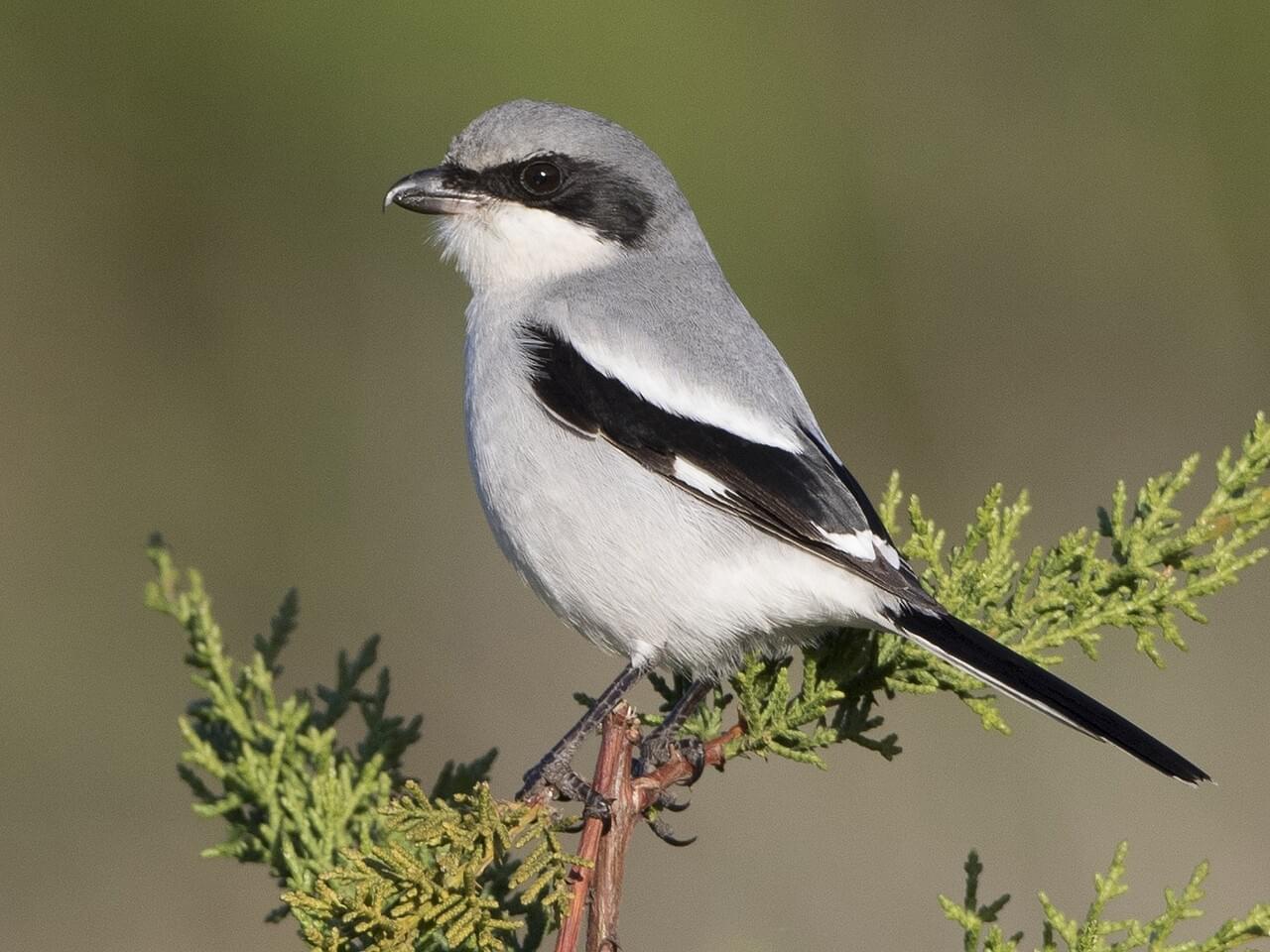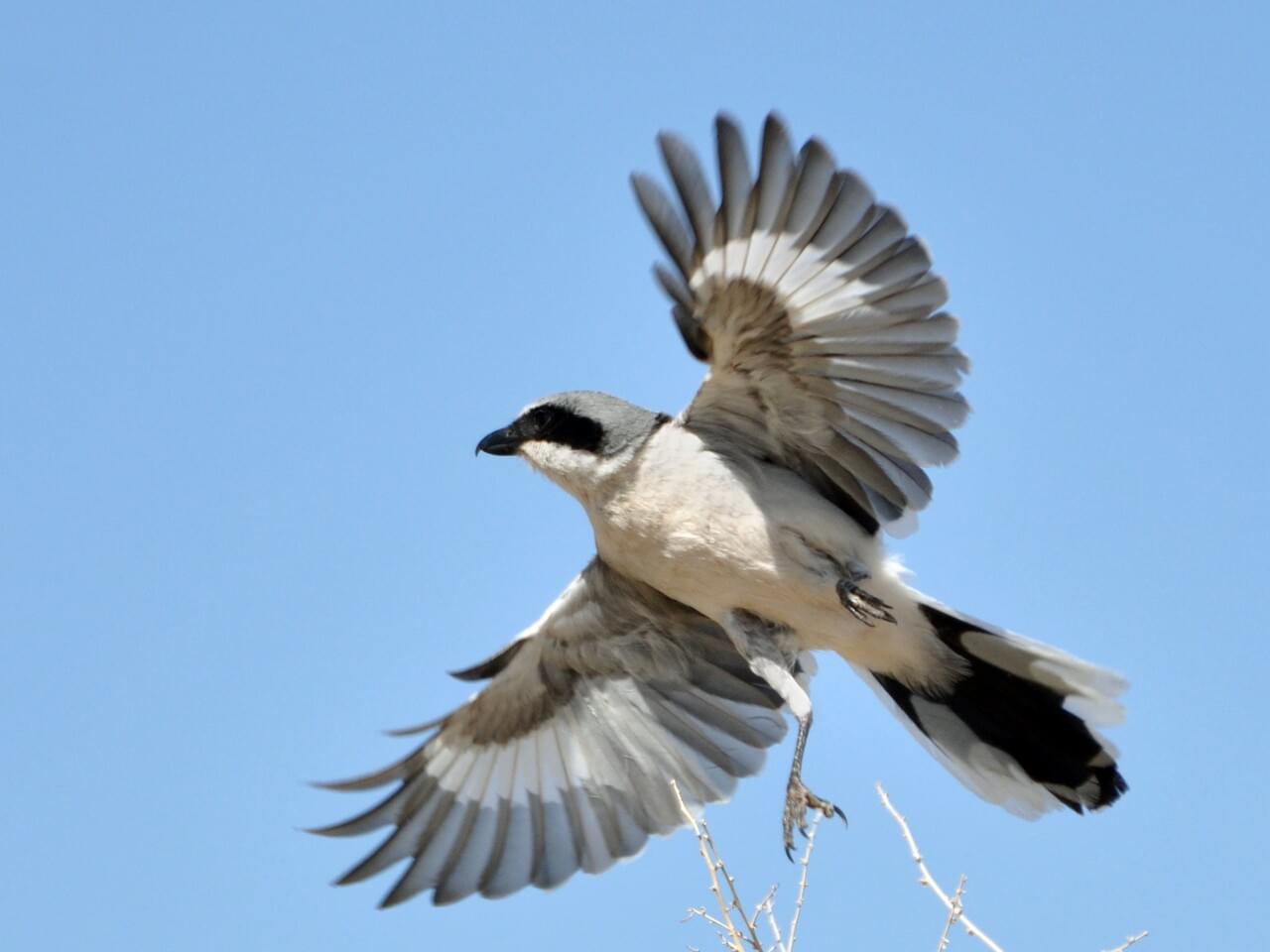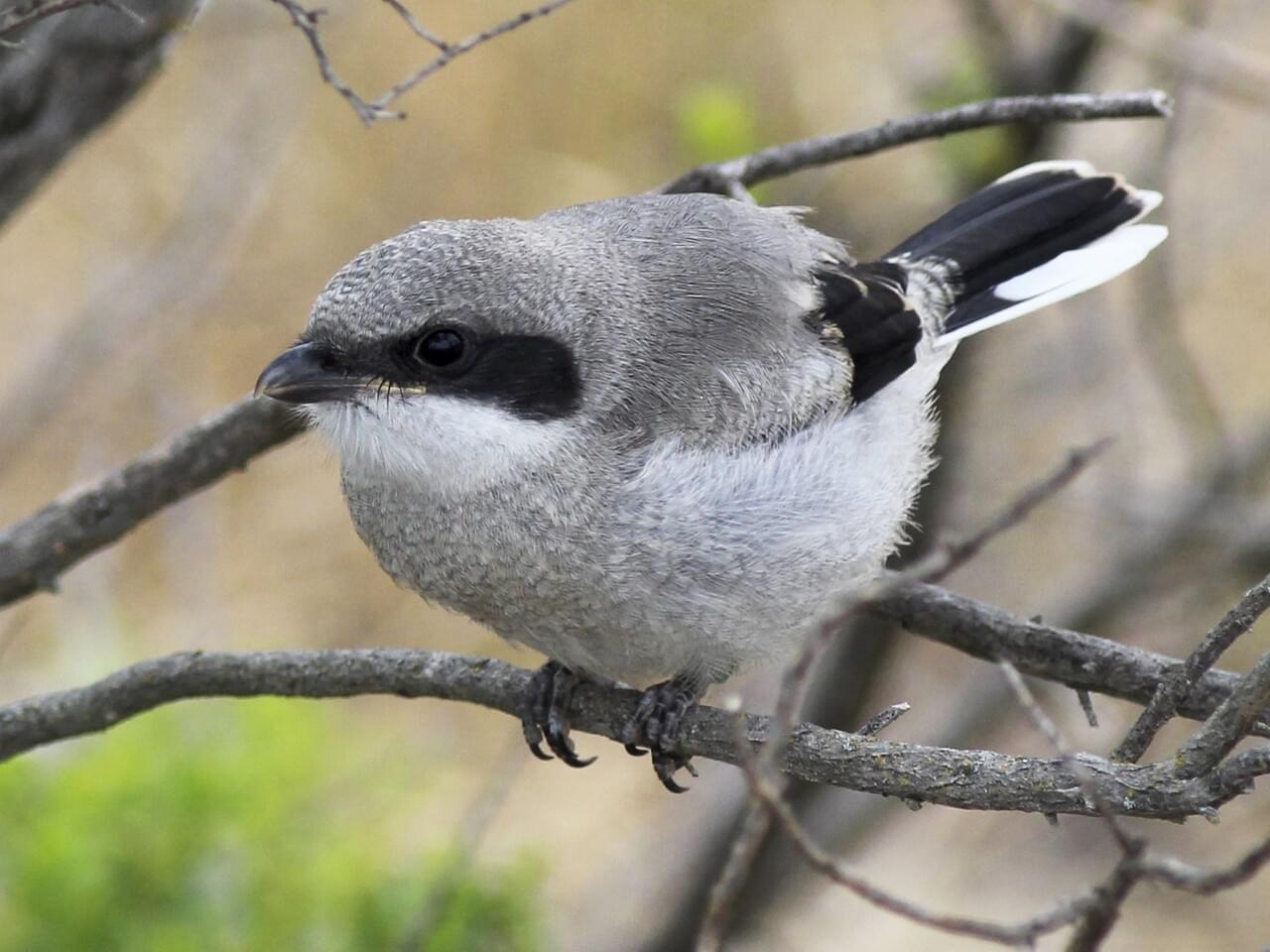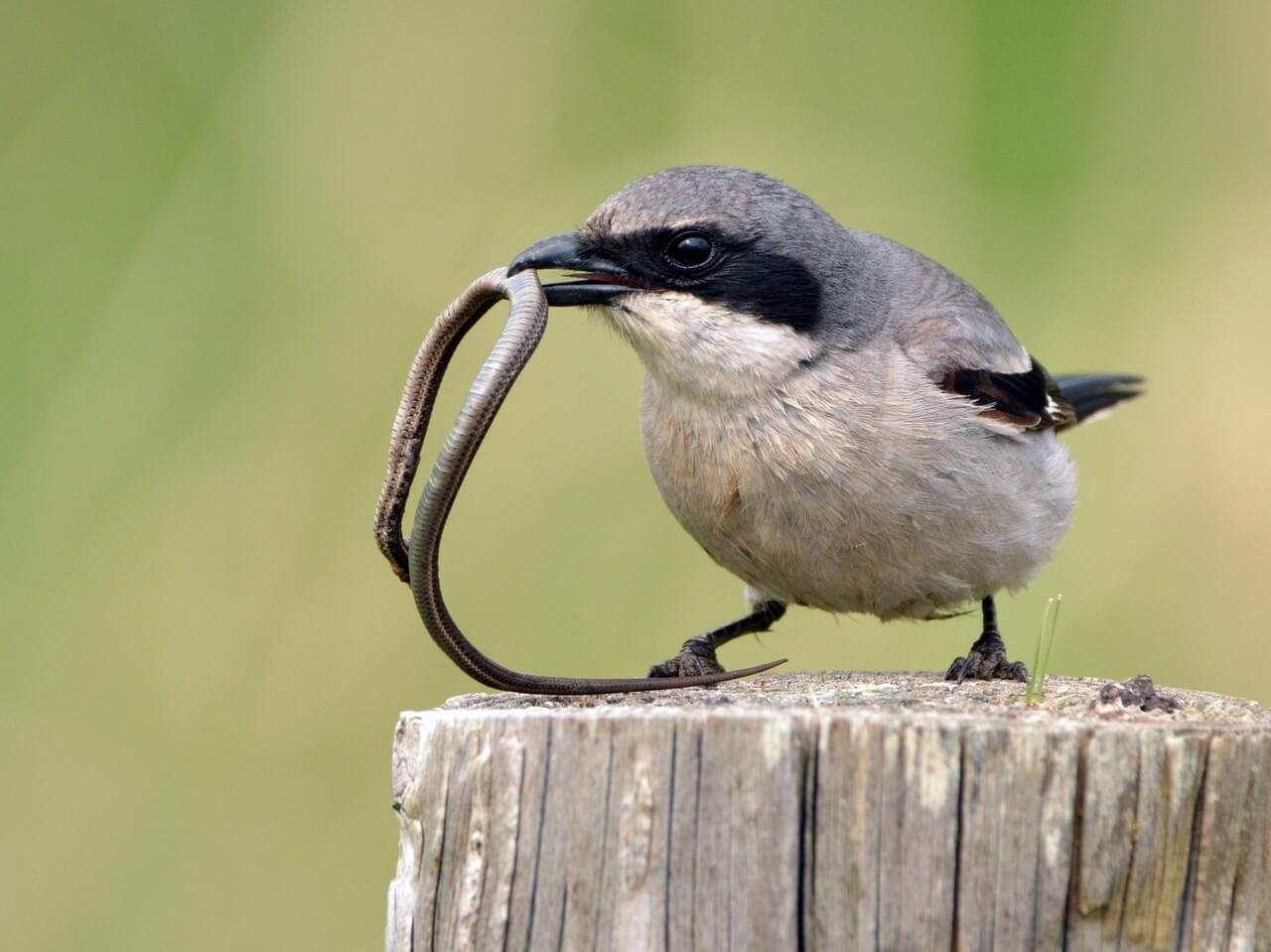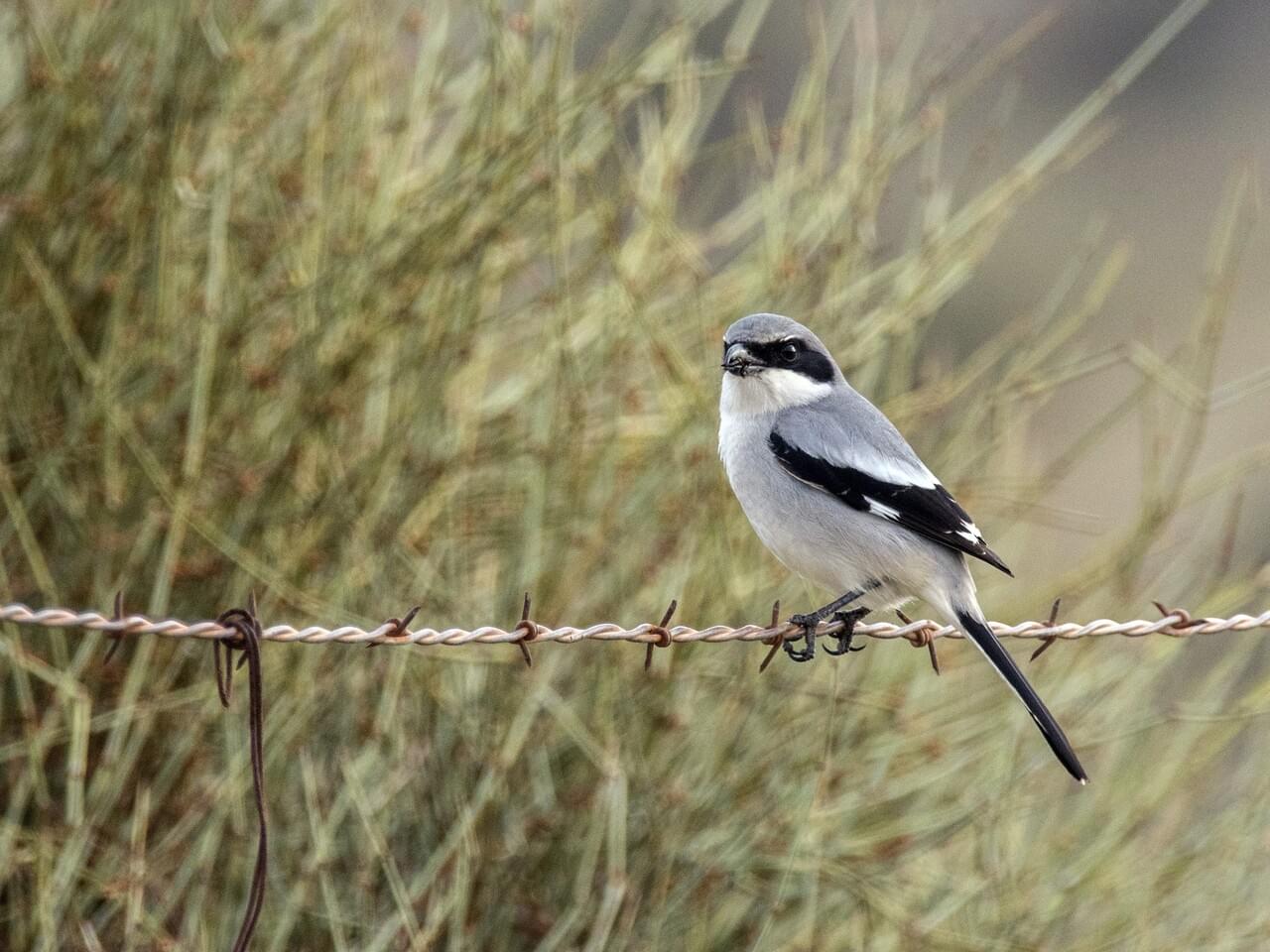 Photo ©
Cameron Rognan
Photo ©
Cameron Rognan
Loggerhead Shrike
Regional Species
The Loggerhead Shrike is a songbird with a raptor’s habits. A denizen of grasslands and other open habitats throughout much of North America, this masked black, white, and gray predator hunts from utility poles, fence posts and other conspicuous perches, preying on insects, birds, lizards, and small mammals. Lacking a raptor’s talons, Loggerhead Shrikes skewer their kills on thorns or barbed wire or wedge them into tight places for easy eating. Their numbers have dropped sharply in the last half-century.
Range
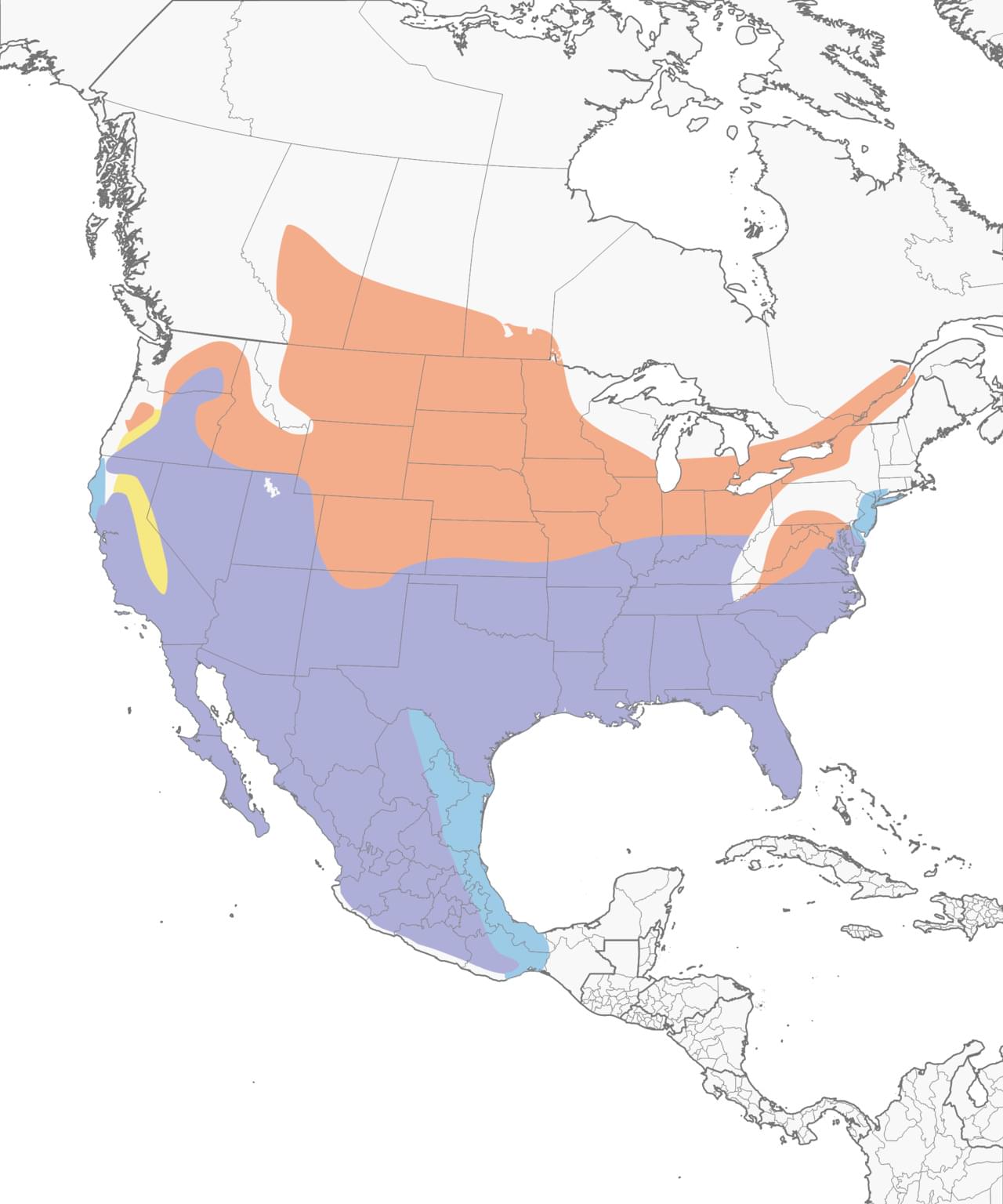
Habitat
Loggerhead Shrikes inhabit open country with short vegetation and well-spaced shrubs or low trees, particularly those with spines or thorns. They frequent agricultural fields, pastures, old orchards, riparian areas, desert scrublands, savannas, prairies, golf courses, and cemeteries. Loggerhead Shrikes are often seen along mowed roadsides with access to fence lines and utility poles.
Food
Loggerhead Shrikes eat insects and other arthropods, amphibians, reptiles, small mammals, and birds; they also sometimes feed on roadkill and carrion. Their staple foods include agricultural pests such as grasshoppers, beetles and rodents. Insects generally dominate the Loggerhead Shrike’s diet during breeding season, while winter brings a greater reliance on vertebrate prey. These include lizards, snakes, frogs, turtles, sparrows, goldfinches, ground squirrels, voles, mice, and shrews, to name just a few.
Behavior
Loggerhead Shrikes hunt by scanning the ground from elevated perches, then diving onto prey. They also hover-hunt. Loggerhead Shrikes sometimes hunt from the ground, flashing their wing patches in a manner similar to the Northern Mockingbird, to startle prey out of hiding. To immobilize large prey items, the Loggerhead Shrike impales them on sharp objects such as thorns and barbed wire, or tucks them into forks between branches. Caches of prey thus lain away, also called “larders” or “pantries,” provide food stores during winter when prey is scarce, or in breeding season when energy demands are high. A well-provisioned larder may also help a male shrike attract a mate. Loggerhead Shrikes maintain territories largely through songs and displays. Males challenge intruders with a wing-fluttering bow, like an intensified version of their prey-stalking display. Displaying rivals usually face away from one another, but may whirl to face each other or stamp the ground. Before nesting, several neighboring shrikes may gather together and call or display for several minutes. This may help establish territories in the neighborhood, promote pair formation, and help new arrivals find territories near already-established birds. Courting males feed and sing to females, perform a ritual dance, and/or perform a flight display. They are mostly monogamous, although females occasionally raise one brood with one male and then take up with another mate for a second brood the same season.
Nesting
Both sexes gather material. The female usually constructs the nest on her own, over a period of about 6–11 days. The bulky, well-insulated open cup is neatly woven of rootlets, twigs, forbs, and bark strips and lined inside with soft material such as flowers, lichen, grass, moss, feathers, fur, string, or cloth. The nest is about 6 inches in diameter on the outside, with an interior diameter of about 4 inches; the cup is about 3 inches deep.
Appearance
Typical Sound
© Andrew Spencer | Macaulay Library
Size and Shape
Loggerhead Shrikes are thick-bodied songbirds. They have large, blocky heads and a thick bill with a small hook. The tail is fairly long and rounded.
Color Pattern
The Loggerhead Shrike is a gray bird with a black mask and white flashes in the black wings. The gray head contrasts with the wide, black mask, black bill, and white throat. The tail is black with white corners; the wings are black with white at the base of the primaries that form a small “handkerchief” spot when the wing is closed and larger white patches in flight. Juveniles have darker barring above and below.
Plumage Photos
Similar Species
The very similar Northern Shrike tends to occur farther north than Loggerhead Shrikes and is typically seen in the northern and central U.S. only in winter, when most Loggerhead Shrikes are farther south. Northern Shrikes have a narrower mask with a white upper border, and the bill often shows a pale base. Northern Mockingbirds are slimmer and browner, without a black mask and with yellow eyes and more white in the wing. Mockingbirds have dusky wings with less contrast between wing and back. Mockingbirds fly with slower wingbeats than Loggerhead Shrikes. Townsend’s Solitaires of the mountain West have a much smaller bill, small head, white eyering, and are more uniformly gray-brown, without the strong contrast of Loggerhead Shrikes.
Did you know?!
- A Loggerhead Shrike can kill and carry an animal as massive as itself. It transports large prey in its feet and smaller victims in its beak.
- The upper cutting edge (tomium) of the Loggerhead Shrike’s hooked bill features a pair of built-in pointy projections, aptly named “tomial teeth.” Like a falcon, the shrike tackles vertebrate prey with a precise attack to the nape, probably using these tomial “teeth” to paralyze the animal with a jab to the spinal cord.
